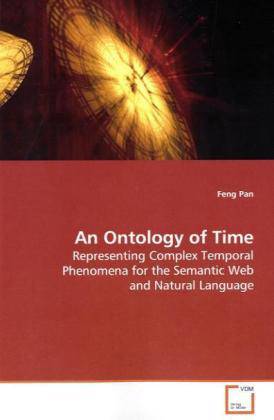
- Afhalen na 1 uur in een winkel met voorraad
- Gratis thuislevering in België vanaf € 30
- Ruim aanbod met 7 miljoen producten
- Afhalen na 1 uur in een winkel met voorraad
- Gratis thuislevering in België vanaf € 30
- Ruim aanbod met 7 miljoen producten
Zoeken
An Ontology of Time
Representing Complex Temporal Phenomena for the Semantic Web and Natural Language
Feng Pan
Paperback | Engels
€ 58,45
+ 116 punten
Omschrijving
As an essential dimension of our information space, time plays a very important role in every aspect of our lives. A specification of temporal information is necessarily required for a large group of applications, including the Semantic Web and natural language. In response to this need, we have developed a rich ontology of temporal concepts, OWL-Time (formerly DAML-Time), for describing the temporal content of Web pages and the temporal properties of Web services. Since most of the information on the Web is in natural language, it can also be used to increase temporal awareness for natural language applications. The ontology is represented in first-order logic and the OWL Web Ontology Language. It covers a very rich set of temporal concepts, extending Hobbs (2002)'s work with more complex temporal phenomena, such as temporal aggregates, temporal arithmetic mixing months and days, and vague event durations. Since missing explicit and exact durations is one of the most common sources of incomplete information for temporal reasoning, we have constructed an annotated corpus and applied machine learning techniques to automatically extract implicit and vague event durations from text.
Specificaties
Betrokkenen
- Auteur(s):
- Uitgeverij:
Inhoud
- Aantal bladzijden:
- 124
- Taal:
- Engels
Eigenschappen
- Productcode (EAN):
- 9783639127782
- Verschijningsdatum:
- 15/03/2009
- Uitvoering:
- Paperback
- Formaat:
- Trade paperback (VS)
- Afmetingen:
- 152 mm x 229 mm
- Gewicht:
- 190 g

Alleen bij Standaard Boekhandel
+ 116 punten op je klantenkaart van Standaard Boekhandel
Beoordelingen
We publiceren alleen reviews die voldoen aan de voorwaarden voor reviews. Bekijk onze voorwaarden voor reviews.











